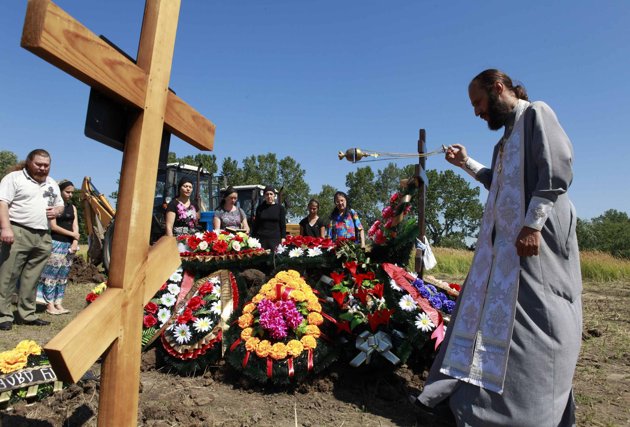submitted by Samuel Bendett

A priest conducts a funeral ceremony, while acquaintances of Pyotr Ostapenko, 35, a flood victim, stand nearby, at the central cemetery in Krymsk in theKrasnodar region, southern Russia, July 9, 2012. Russia began a day of mourning on Monday for the 171 people killed in floods that drove thousands from their homes, with the causes of the disaster posing hard questions for the authorities, including President Vladimir Putin.
Photo By EDUARD KORNIYENKO/REUTERS
yahoo.com - Associated Press - by Nataliya Vasilyeva and Sergey Ponomarev - July 9, 2012
KRYMSK, Russia (AP) — Authorities failed to properly warn residents in the Black Sea region of floods that killed at least 171 people and left others scrambling for safety, Russia's emergencies minister acknowledged Monday, adding to public outrage fueled by widespread mistrust of the government.
Recent Comments